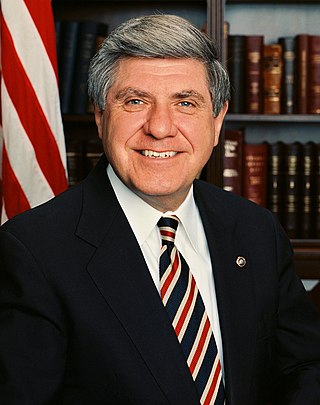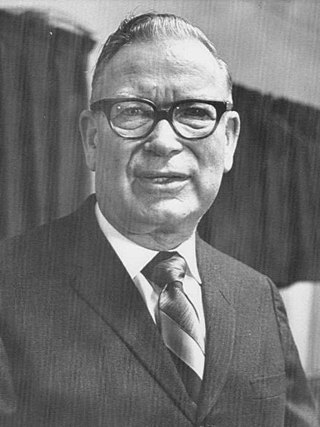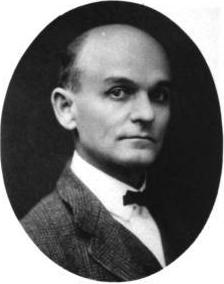
Omaha is the most populous city in the U.S. state of Nebraska and the county seat of Douglas County. It is located in the Midwestern United States along the Missouri River, about 10 mi (15 km) north of the mouth of the Platte River. The nation's 40th-most populous city, Omaha had a population of 486,051 as of the 2020 census. It is the anchor of the eight-county Omaha–Council Bluffs metropolitan area, which extends into Iowa and is the 58th-largest metro area in the United States, with a population of 967,604. Furthermore, the greater Omaha–Council Bluffs–Fremont combined statistical area had 1,004,771 residents in 2020.

A mascot is any human, animal, or object thought to bring luck, or anything used to represent a group with a common public identity, such as a school, sports team, society, military unit, or brand name. Mascots are also used as fictional, representative spokespeople for consumer products.

The Battle of Baghdad, also known as the Fall of Baghdad, was a military engagement that took place in Baghdad in early April 2003, as part of the invasion of Iraq.

Earl Benjamin Nelson is an American attorney, businessman, and politician who served as the 37th governor of Nebraska from 1991 to 1999 and as a United States Senator from Nebraska from 2001 to 2013. He is a member of the Democratic Party, and as of 2024, is the last Democrat to hold and/or win any statewide elected office in Nebraska.

Roman Lee Hruska was an American attorney and politician who served as a Republican U.S. senator from the state of Nebraska. Hruska was known as one of the most vocal conservatives in the Senate during the 1960s and 1970s.
Smoke is a cloud of particles suspended in the air. The term may also refer to:

Joseph LaFlesche, also known as E-sta-mah-za or Iron Eye, was the last recognized head chief of the Omaha tribe of Native Americans who was selected according to the traditional tribal rituals. The head chief Big Elk had adopted LaFlesche as an adult into the Omaha and designated him in 1843 as his successor. LaFlesche was of Ponca and French Canadian ancestry; he became a chief in 1853, after Big Elk's death. An 1889 account said that he had been the only chief among the Omaha to have known European ancestry.

The Nebraska Air National Guard (NE ANG) is the aerial militia of the State of Nebraska, United States of America. It is a reserve of the United States Air Force and along with the Nebraska Army National Guard, an element of the Nebraska National Guard of the larger United States National Guard Bureau.

Dogs have a very long history in warfare, beginning in ancient times. From being trained in combat, to their use as scouts, sentries, messengers, mercy dogs, and trackers, their uses have been varied, and some continue to exist in modern military usage.
Task Force Tripoli (TFT) was a United States Marine Corps air-ground task force formed after the fall of Baghdad during the 2003 invasion of Iraq. This ad-hoc formation was tasked with continuing the attack north to secure the city of Tikrit. It was commanded by Brigadier General John F. Kelly, then Assistant Division Commander of the 1st Marine Division. Within 12 hours of tasking, the Marines were able to put together a convoy of 600 vehicles and 4,000 troops for the mission. The unit was composited on April 12, 2003, in a staging area east of Baghdad and had secured Tikrit by April 15. It is the first time that the Marine Corps ever employed an entire LAV regiment and marked the farthest inland that Marine Forces had ever advanced.

Debra Lynelle Fischer is an American politician and former educator serving as the senior United States senator from Nebraska, a seat she has held since 2013. A member of the Republican Party, Fischer is the third woman to represent Nebraska in the U.S. Senate and the first to be reelected.

The University of Nebraska Medical Center (UNMC) is a public academic health science center in Omaha, Nebraska. Founded in 1869 and chartered as a private medical college in 1881, UNMC became part of the University of Nebraska System in 1902. Rapidly expanding in the early 20th century, the university founded a hospital, dental college, pharmacy college, college of nursing, and college of medicine. It later added colleges of public health and allied health professions. One of Omaha's top employers, UNMC had an annual budget of $1.024 billion for 2024 to 2025 and an economic impact of $5.9 billion.
Germans in Omaha immigrated to the city in Nebraska from its earliest days of founding in 1854, in the years after the Revolutions of 1848 in the German states. They continued to immigrate to Omaha in large numbers later in the 19th century, when many came from Bavaria and southern Germany, and into the early 20th century. Germans created and maintained a high cultural, social and political profile locally and nationally through the 1930s. In 1890, Germans comprised 23% of Omaha's population. By 1910, 57.4% of Omaha's total population of more than 124,000 identified as being of German descent.

James Charles Dahlman, also known as Jim Dahlman, Cowboy Jim and Mayor Jim, was elected to eight terms as mayor of Omaha, Nebraska, serving the city for 20 years over a 23-year-period. A German-American and an agnostic, Dahlman grew up in a ranching area and started working as a Texas cowboy. He was elected as a county sheriff and small town mayor in western Nebraska before moving to Omaha.

Security Advisory Opinion (SAO) or Washington Special Clearance, commonly called security clearance, administrative clearance, or administrative processing, is a process the United States Department of State and the diplomatic missions of the United States use in deciding to grant or deny a United States visa to certain visa applicants. The process involves sending a request from the visa issuing post to the Department of State's headquarters in Washington, D.C., to investigate an individual's case for possible espionage, terrorism, and illegal export of technology out of the United States.
Animal-borne bomb attacks are the use of animals as delivery systems for explosives. The explosives are strapped to a pack animal such as a horse, mule or donkey. The pack animal may be set off in a crowd.

Lesbian, gay, bisexual, transgender, and queer (LGBTQ) people in the U.S. state of Nebraska may face some legal challenges not experienced by non-LGBTQ residents. Same-sex sexual activity is legal in Nebraska, and same-sex marriage has been recognized since June 2015 as a result of Obergefell v. Hodges. The state prohibits discrimination on account of sexual orientation and gender identity in employment and housing following the U.S. Supreme Court's ruling in Bostock v. Clayton County and a subsequent decision of the Nebraska Equal Opportunity Commission. In addition, the state's largest city, Omaha, has enacted protections in public accommodations.

The human–canine bond is rooted in the domestication of the dog, which began occurring through their long-term association with hunter-gatherers more than 30,000–40,000 years ago. The earliest known relationship between dogs and humans is attested by the 1914 discovery of the Bonn–Oberkassel dog, who was buried alongside two humans in modern-day Oberkassel, Germany, approximately 15,000 years ago. For centuries, the phrase "man's best friend" has commonly been used to refer to dogs, as they were the first species and the only large carnivore to have been domesticated. This companionship is most evident in Western countries, such as the United States, where 44% of households were found to be keeping at least one dog as a pet.

Jave Gakumei Yoshimoto is an American painter.

Leonard Steven Grasz is an American attorney and jurist serving as a United States circuit judge of the United States Court of Appeals for the Eighth Circuit.
















